Sarah Ash's Blog, page 8
May 14, 2018
About Historical Fantasy by Sandra Unerman
My new novel, Ghosts and Exiles is set in London in the 1930s. I describe it as a historical fantasy, which sometimes puzzles people who think of fantasy as a single tradition, consisting of The Lord of the Rings, Game of Thrones and other epics set in invented worlds. These days, a much wider range of models is available for the fantasy writer, from alternative visions of our own world, like the Harry Potter series to science fantasy set on other planets. But there is also a much older tradition of stories with a realistic setting, where the fantasy happens in unnoticed cracks in the world as we understand it. Some of my favourite novels are in this tradition, including Sylvia Townsend Warner’s Lolly Willowes. In this story about an unmarried Englishwoman of the 1920s, the fantastical elements are so understated, it’s possible to wonder whether it all happens in the protagonist’s mind. But the evocation of character and atmosphere provide a strong sense of the weird and of strangeness under the surface of everyday life. Lolly Willowes was written in the 1920s, so it was not set in the past, but it is an example of what fantasy can achieve in a realistic setting. Another great example is Still She Wished for Company by Margaret Irwin, a timeslip novel, which moves between the 18th century and the 1920s.
I enjoy reading epic fantasy but I’m not inspired to write one. I have set some short stories in invented worlds but these are explorations of particular moments of drama, not designed to open up wider questions about society or the environment. I can’t think of a new variation on the hero’s journey, male or female. War and political rivalry, whether in the shape of aristocratic feuds or the class struggle are powerful themes but they don’t spark my imagination as a writer. Instead, I am intrigued by the choices faced by ordinary people as they try to add meaning to their lives. Setting such moments in a fantasy context makes it possible to explore psychological and social truths at a more playful but also perhaps at a deeper level than in realistic fiction.
I have thought about setting a fantasy novel of that kind in the present. But this would require just as much world building as any other setting, to express my version of what life is like for my characters. In some ways, it would be more restrictive, because I would be afraid of getting things wrong, outside the limits of my personal experience. I could do research, of course, but that would feel more intrusive than research into the past and I would worry more about the inevitable mistakes. More fundamentally, a contemporary setting would not allow me to exercise my imagination in the same way as writing about the past. This isn’t nostalgia: I wouldn’t want to live in a time before modern medicine and modern attitudes to woman. But I have always believed that it’s only possible to understand the present by learning about history. There is, of course, a long-standing contrast between the assumption that people in the past were fundamentally just like us and the belief that they made different assumptions about the world and cared about different things. I think both are true and the tension between them opens up interesting possibilities for the kind of stories I want to write.
Ghosts and Exiles follows on from my novel Spellhaven and looks at what happens to the families who came to London after the downfall of that city. I never studied the 1930s formally, partly because when I was at school, the period would have been considered too recent to count as history. I was introduced to it through some of my favourite detective stories, by Dorothy L Sayers, Josephine Tey and others and, at a more sombre level, by reading about the build-up to the Second World War. Attitudes to women, work and marriage were changing in interesting ways in those days and people were still struggling to come to terms with the impact of the First World War. This all provides the right background for the story I wanted to tell, of a group of adults and children who face an intrusion of ghosts and dangerous magic, while dealing with uncertain beliefs and longings for an unattainable past.
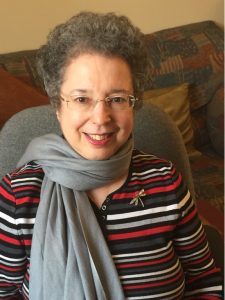
Find out more about Sandra Unerman’s new novel here
Read Sandra Unerman’s earlier post for the Guest Blog here
Please Feel Free to Share:







May 12, 2018
Sandra Unerman returns to talk about Historical Fantasy for the Guest Blog
I’m delighted to announce that Sandra Unerman will be here on Monday May 14th with some thoughts on writing historical fantasy, linking in with the publication of her latest novel, Ghosts and Exiles.
Please Feel Free to Share:







March 26, 2018
Follycon 2018
I’m looking forward to attending this year’s Eastercon – Follycon – in Harrogate. I’m on one panel – with a fascinating topic and I can’t wait to hear the opinions of the other panel members: Kieron Gillen, Graham Sleight, Faith D. Lee and Dominic Dulley.
Form Versus Content in Writing
Form versus content is a false dichotomy, but different writers put priority differently on elements such as style, themes, story and structure. Let’s explore some of the earliest decisions writers have to make.
On Monday Apr 02 10:00 AM to 11:00 AM (1 hour)
Please Feel Free to Share:







March 1, 2018
Cover Artists – Didier Graffet
Lord of Snow and Shadows
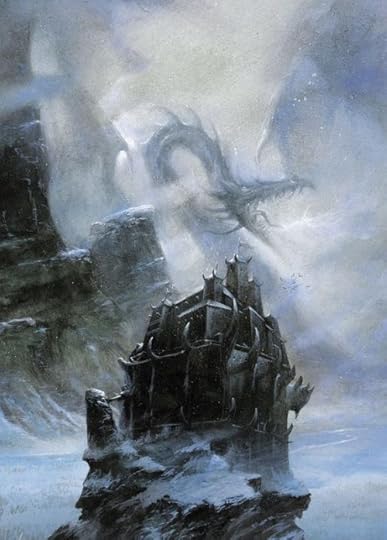
The cover art for The Tears of Artamon was commissioned for the French editions at Bragelonne and Livre de Poche from the very talented artist Didier Graffet. And it’s so beautiful!
On this snowy day, it seems a good time to celebrate Didier Graffet’s work and say thank you!
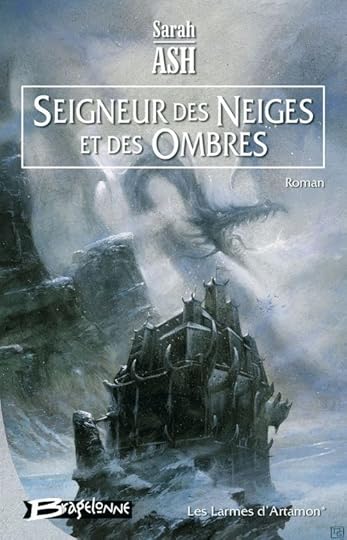
See more of wonderful Didier Graffet’s cover art here.
Please Feel Free to Share:







January 16, 2018
Emperor of the Fireflies makes SJ Higbee’s Outstanding Books of 2017
I’m surprised and delighted that Emperor of the Fireflies Tide Dragons #2 has been chosen by Sarah Higbee as one of her outstanding books of 2017.
https://sjhigbee.wordpress.com/2018/01/08/my-outstanding-books-of-2017/
I can’t resist pointing out here that Sarah Higbee has a new SF novel out, Dying for Space, the second in her Sunblinded trilogy; the first is called Running Out of Space and both are well worth your time! (A third, Breathing Space, will follow soon). You can read the guest blog post entitled How Do You Like Your Speculative Fiction? that Sarah Higbee wrote for this website here.
Please Feel Free to Share:







October 23, 2017
Talking About Manga and Anime at BristolCon
I’m looking forward to giving another talk about aspects of Japanese mythology in manga and anime at BristolCon 2017 on October 28th. Find me in the Art Room at 3 p.m. It goes without saying that there’s plenty of cool SFF stuff happening at the convention all day – as well as plenty of authors and artists.
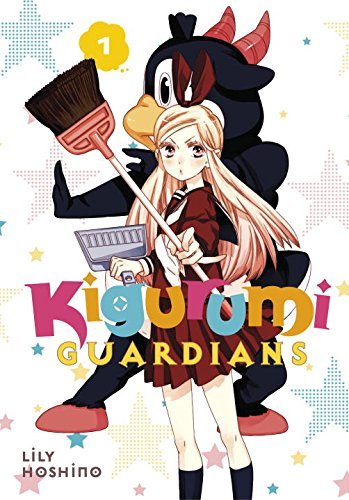
When not wrestling with the WIP and the vagaries of a writer’s life, I’m busy reviewing anime and manga for Anime UK News. I’ve recently reviewed the first volume in an intriguing fantasy series about magical girls…with a difference: Kigurumi Guardians (Kodansha) by Lily Hoshino.
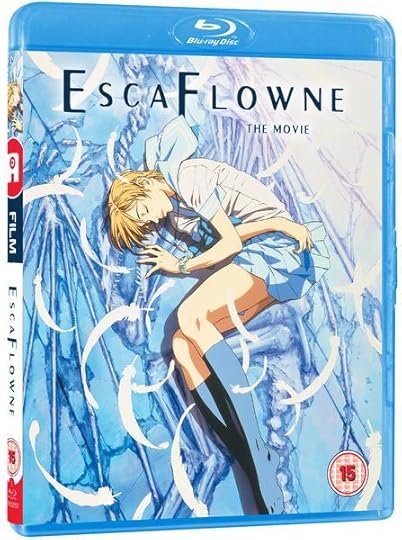
And I’ve just written about the recent release of Escaflowne the Movie on Blu-ray from Anime Limited which is based on a classic favourite fantasy anime series of mine.
Please Feel Free to Share:







August 28, 2017
What Have Writing Groups Done For Me? Sandra Unerman explains…
How have other writers helped my work?
My novel, Spellhaven, has just been published by Mirror World Publishing, to my great excitement. The story is full of things I’ve wanted to write about for ages, including an island city ruled by magicians, a place where life revolves round all kinds of theatrical shows and a young woman who refuses to accept the plans other people make for her. But the novel didn’t reach publishable form just through my solitary efforts to work out my inspirations. It has been influenced in different ways by the encouragement and feedback I have received from other writers in various writing groups as well as from the tutors on my MA course in Creative Writing.
The first seeds of Spellhaven came from a couple of short stories I took to Milford years ago. For those who are not familiar with it, Milford is a weeklong residential writing workshop, held once a year in the UK (following a model from the USA). 12 to 15 writers bring along two or three pieces of work for critiquing and we all sit round in a circle, taking it in turns to comment or receive feedback. I was pretty apprehensive, the first time I went. I wasn’t sure whether in-depth analysis of my work by other writers would finish off my creative impulses altogether. And I didn’t know if I’d be able to make a worthwhile contribution in my comments on their work. In fact, I found the whole experience intense but thoroughly enjoyable and stimulating. Comments on my pre-Spellhaven stories showed me that I hadn’t yet succeeded in getting across the vision inside my head but gave me some useful hints about the way forward.
When I retired from my full-time job in 2010, I decided to embark on an MA in Creative Writing at Middlesex University, specialising in SF and fantasy. One reason was that I wanted more regular contact with other writers who shared my interests. The course also gave me a chance to study in some depth topics such as narrative and voice. The novel writing module provided the impulse to write the first draft of Spellhaven in its present form, since we were asked to produce a complete draft of a novel in three months, starting from scratch. I can’t recommend that particular course, because it’s no longer on offer, but I certainly found the whole experience worthwhile. The feedback I received from the tutor and fellow students spurred me to carry on further work on the novel and to send it out to publishers and agents.
I now belong to 3 regular writing groups, which all have their influence on my current work. Two are critiquing groups, like Milford. One is online, one of the Orbit groups of the British Science Fiction Association. The other is a small local group, Middleoak, which meets face-to-face. This was initially formed from some of the people on my Middlesex course, who wanted to keep in contact, although we do now have members who have not been through that experience. I have submitted a number of short stories to these groups, which have later gone on to find a publisher. These include, most recently, Every Midnight, in the June issue of Swords and Sorcery online, and Gammer Lobstone, in an anthology, Fall into Fantasy, due out in September. And sections of my follow-up novel, Ghosts and Exiles, which is due to be published in 2018, were also critiqued by Middleoak.
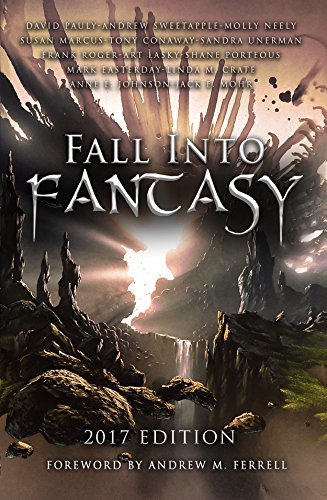
My third group, Clockhouse London Writers, operates on rather different principles. This group, led by Allen Ashley, also meets once a month, to discuss market opportunities and ideas for genre fiction. We have a go at writing on the spot on a set theme, either individually or in collaboration, and share the results. The Clockhouse meetings have got me started on a number of stories, which I might otherwise never have written.
On the basis of my experience, I would recommend joining a group to anyone who has the impulse to share their writing with other people. But I think there are a few qualifications necessary to make for a successful group. First, it helps if people are engaged in the same field, in the broadest sense. I’ve found that writers of fantasy, SF and other kinds of speculative fiction can usually understand enough about each other’s work to give useful feedback, even if their styles are very different. But writers who like to keep to the strictly realistic (as they see it) may not be much help.
Secondly, remember that you’re trying to enable each person to develop their own creative vision, not rewrite for them or demonstrate your own powers of criticism. I think it probably helps if you enjoy trying to understand what someone else is trying to achieve. That way, you can give your own reactions as a reader but at the same time, help them think through how they can move forward. I’ve found some of the most helpful criticism has been the kind that makes me see the gap between what I’ve put on the page and what was in my mind’s eye. Sometimes, something about a character or a setting has seemed so obvious to me that I’ve forgotten to write it down.
At its most basic, it helps to have other people to talk to about how the work is going, as well as recommendations for books to read and general gossip. These days, there are more forums for that sort of activity than there used to be, including blogs like this, for example. But regular meetings (face to face or online) can build a stronger network in a way I’ve certainly found very worthwhile.

Sandra Unerman lives in London in the UK. When she retired from a career as a Government lawyer, she undertook an MA in Creative Writing at Middlesex University, specialising in SF and fantasy, and graduated in 2013. Since then, she has had a number of short stories published. She writes reviews and articles for the British Science Fiction Association and the British Fantasy Society. She is a member of London Clockhouse writers and other writing groups. Her interests include history, folklore and medieval literature.
Please Feel Free to Share:







August 25, 2017
Sandra Unerman talks about Writing Groups on the Guest Blog Next Week
I’m thrilled to welcome Sandra Unerman to the Guest Blog next Monday – all the more so as her contribution coincides with the publication of her new fantasy novel Spellhaven. So do drop by the Guest Blog on the 28th August to read what she has to say!
Please Feel Free to Share:







July 14, 2017
Books Are My Bag… Books on the Hill launches a new Fantasy & SF online shop
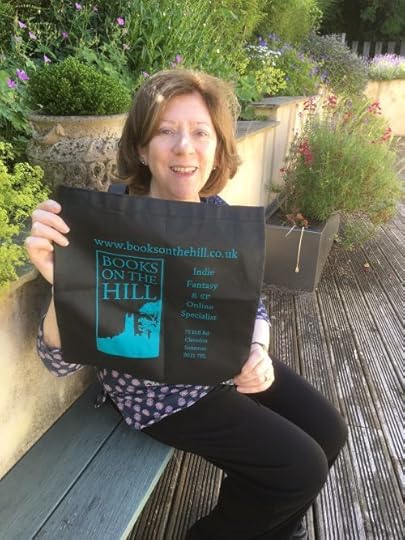
While the Guest Blog is on its summer holidays, time to celebrate a new venture for Alistair Sims at the wonderful independent Bookshop Books on the Hill. The new website launches at Edge-Lit 6 on July 15th at the Quad in Derby; this event is also hosting the prestigious Gemmell Awards
Please Feel Free to Share:







June 6, 2017
Winter Downs by Jan Edwards: the Blog Tour
Horror to Crime: Genre Switching for Winter Downs
When Sarah asked me to talk about my move from the horror and fantasy genre to crime, I have to be honest and say it was not a conscious decision. Most of my publication credits have been in what would be called sf, horror and fantasy but that was not a deliberate career decision. I have always read widely across the spectrum from Jane Austen to Zane Grey, and written two main stream novels (one under a pen name). I suspect my obsession with folklore skewed my short fiction in the general direction of what is often called Weird Fiction, and then only because mainstream narratives seldom allow for anything that smacks of the supernatural.
Horror and crime weave in and out of each other like strands on a wicker basket and the differences are often only in degrees of blood and guts. I usually reach a substantial body count but I have never leaned toward the overtly visceral in horror or crime. I am more interested in the ripples that acts of violence create across the lake, or, in the case of Winter Downs, the village pond.
Like many children I had a predilection for Enid Blyton mysteries, but was equally drawn to the metafiction of Arthur Ransome’s Swallows and Amazons where the Walkers and Blacketts spun fictional mysteries in an everyday world. As a budding writer it was a concept I could readily identify with. During one summer holiday (aged 8?) I spoke in the third person as a character in my own book as a direct result of that. Nancy Blackett remains my first and most loved fictional heroine. She is the strong female protagonist – the role model – that many children’s books lack even now. At nine years old I wanted to very much to be Captain Nancy.
I read anything and everything I could lay hands on right as a child, including the Cornflakes packet (mother did not allow books at the breakfast table). Niacin, Thiamine and Riboflavin is a poetic sequence that haunts me to this day! I suffered a fair amount of illnesses as a child and reading was my escape, and with only elder brothers to borrow from my reading matter was never going to be all Unicorns and Flower Fairies. I read the Lion and The Eagle comics avidly with a special affection for Dan Dare and was hooked on the weird and wonderful from an early age.
My short fiction has a strong folklore theme because folklore has always been a mild (?) obsession. So why did I stray from my supernatural leanings to write Winter Downs –a WW2 crime novel? First of all, as I said before, I am not sure there is much of a divide between horror and crime, and secondly, it was not so much a step as sub-conscious shuffle.
I fell into Sherlock Holmes initially, through a commissioned mash-up novel. That project subsequently foundered and is still sitting on my hard drive. But having developed a taste for the Great Detective, I chanced my arm with a submission for the Mammoth Book of the Adventures of Moriarty. High on success I wrote a few more Sherlock-themed stories for the MX publishing’s series of anthologies, which are sold in aid of the Stepping Stones School charity in Conan Doyle’s former home, Undershaw.
To write Holmesian fiction for the MX anthologies requires a strict observance of the canon. Nothing occurs that Doyle might not have penned himself; which requires meticulous plotting and cartloads of research. And maybe here is the thing… I love research!
When writing horror and fantasy I have always been a ‘seat of the pants’ kind of a girl. So long as a writer sticks within the rules of their own world, they can pretty much take a story as far and as high as the imagination can reach. If you lay out your world and stay within those parameters then using any fantastical or supernatural trope is possible and even plausible.
The world of whodunnit crimes works by a far stricter set of rules. It is rooted firmly in the real world. Clues need to be laid in a breadcrumb trail to that dramatic denouement. The need to tease the reader whilst giving them every chance to solve the riddles ahead of the final page without using whacking great signposts is the challenge. I have always loved reading golden age and noir crime. The likes of Poirot or Lord Peter Wimsey and Harriet Vane or Mrs Bradley. So when it came to writing a crime novel of my own, it seemed natural to delve into history for my own heroine.
Why Sussex? Because despite leaving the county a long time ago, it is my default setting, and the quantities of WW2 pill boxes littering the Sussex Weald and Downs that I played in as a child provided plenty of inspiration. So when it came to writing Winter Downs setting and period just came to me as a package. The huge amounts of researching of the time as well as the place has been an added bonus!
Winter Downs and its central characters Rose ‘Bunch’ Courtney and Chief Inspector Wright inhabit a straight forward whodunnit crime. I already have two more novels mapped out and two more in gestation, so you can see that writing in a different genre is not a problem.
The only obstacles arose when the time came to loose it onto the world at large. Publishing and publicity circles that I had moved in needed to be enlarged to take in crime, and though some of those contacts are the same, new reviewers and bloggers in the crime fiction circles had to be sought and approached. I am very much the new girl on that block and networking amongst new people is a process that doesn’t come easily to me.
So in answer to Sarah’s question, yes, I have crossed the genre divide into crime fiction, but I shall always have a toehold in the supernatural and the fantastic. I have a commissioned project yet to be announced that combines 1930s crime with the supernatural, and I am part of a direct-to-DVD Dr Who project for Reel Time Pictures via Telos Press. Plus other small projects in planning. You can take the girl out of horror but…
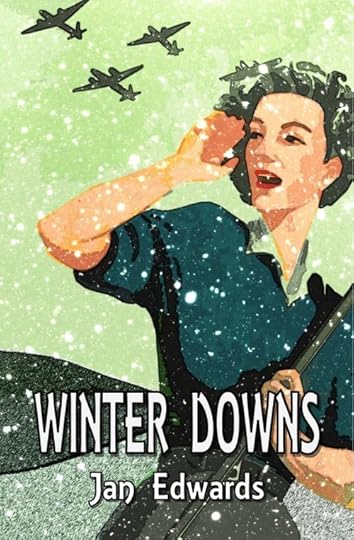
Winter Downs
Jan Edwards
3rd June 2017 | Penkhull Press
ISBN 978-0-9930008-6-7
Paperback £7.99 tbc | ebook £2.99 tbc
In January of 1940 a small rural community on the Sussex Downs, already preparing for invasion from across the Channel, finds itself deep in the grip of a snowy landscape, with an ice-cold killer on the loose.
Bunch Courtney stumbles upon the body of Jonathan Frampton in a woodland clearing. Is this a case of suicide, or is it murder? Bunch is determined to discover the truth but can she persuade the dour Chief Inspector Wright to take her seriously?
Winter Downs is first in the Bunch Courtney Investigates series. Published in paper and e formats.
Jan Edwards is a Sussex-born writer now living in the West Midlands with her husband and obligatory cats. She was a Master Locksmith for 20 years but also tried her hand at bookselling, microfiche photography, livery stable work, motorcycle sales and market gardening. She is a practising Reiki Master. She won a Winchester Slim Volume prize and her short fiction can be found in crime, horror and fantasy anthologies in UK, US and Europe; including The Mammoth Book of Dracula and The Mammoth Book of Moriarty. Jan edits anthologies for The Alchemy Press and Fox Spirit Press, and has written for Dr Who spinoffs with Reel Time Pictures.
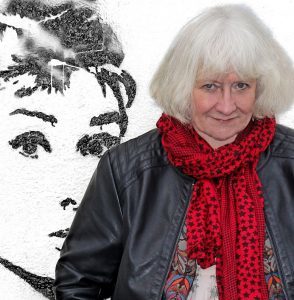
For further information please contact Penkhull Press at: https://thepenkhullpress.wordpress.com/
Jan is available for Q&A s and interviews. Follow the links to the Q&A page if time is pressing and you can just pick a few questions that appeal to you or get in touch at the links below.
For reviewing purposes e ARCs available in Mobi, PDF or eFile for reviewing purposes. You can join Jan’s newsletter via the Contacts Page or at Jan @ rowangrove.co.uk or call Jan at 01538 751705
Please Feel Free to Share:










